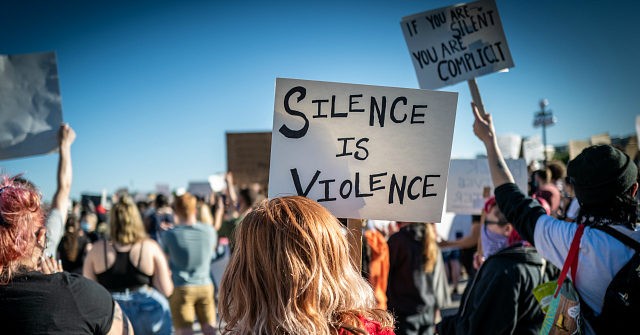JimBowie1958
Old Fogey
- Sep 25, 2011
- 63,590
- 16,753
- 2,220
This is the point I have been making for months now; people lie top pollsters or skewer the polling by not answering if they support Trump.

 www.breitbart.com
www.breitbart.com

Poll: Nearly Two-thirds of Americans Fear Sharing Their Political Views
62% of Americans, and 77% of Republicans, are afraid to share their views. Only staunch liberals (58%) say they feel free to do so.
According to the poll, 62% of Americans — and 77% of Republicans — are afraid to share their views. Even a majority of Democrats (52%) report that they are afraid to share their views.
The only group that feels they are free to share their views are “staunch liberals,” 58% of whom say they can do so.
Cato’s Emily Ekins writes:
A new Cato national survey finds that self‐censorship is on the rise in the United States. Nearly two-thirds—62%—of Americans say the political climate these days prevents them from saying things they believe because others might find them offensive. The share of Americans who self‐censor has risen several points since 2017 when 58% of Americans agreed with this statement.…Strong liberals stand out, however, as the only political group who feel they can express themselves. Nearly 6 in 10 (58%) of staunch liberals feel they can say what they believe. However, centrist liberals feel differently. A slim majority (52%) of liberals feel they have to self‐censor, as do 64% of moderates, and 77% of conservatives. This demonstrates that political expression is an issue that divides the Democratic coalition between centrist Democrats and their left flank.
…What’s changed? In 2017 most centrist liberals felt confident (54%) they could express their views. However today, slightly less than half (48%) feel the same. The share who feel they cannot be open increased 7 points from 45% in 2017 to 52% today. In fact, there have been shifts across the board, where more people among all political groups feel they are walking on eggshells.…Nearly a third (32%) of employed Americans say they personally are worried about missing out on career opportunities or losing their job if their political opinions became known.

